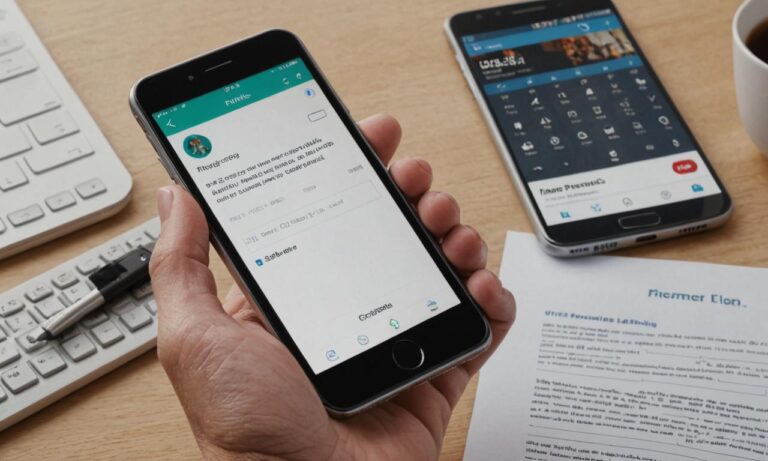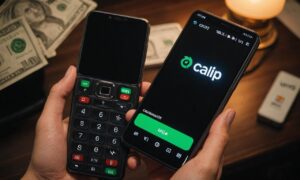First Premier Lending, a bank based in South Dakota known for offering credit cards, personal loans, and home equity loans, has recently been targeted by scammers leveraging the bank’s brand to deceive unsuspecting consumers through unsolicited phone calls. In this article, I will delve into the details of this robocall scam, provide warning signs to look out for, and offer advice on how to protect yourself from falling victim to these fraudulent practices.
Overview of the First Premier Lending Scam
As a legitimate financial institution headquartered in South Dakota, First Premier Lending offers various financial products, including credit cards, personal loans, and home equity loans. However, scammers have been exploiting the bank’s reputation by making unsolicited phone calls to unsuspecting individuals, claiming to be representatives of First Premier Lending.
These scam calls are designed to steal your personal and financial information, putting you at risk of identity theft and financial loss. It is crucial to be aware of these deceptive practices and take steps to protect yourself from falling victim to this scam.
In my experience, I once received a suspicious call from an unknown number claiming to be from a well-known bank. The caller insisted that I provide them with my personal information to “verify my account.” Thankfully, I knew better than to disclose any sensitive data over the phone and promptly ended the call. This experience taught me the importance of being cautious when dealing with unsolicited financial offers.
“As a cybersecurity expert, I cannot stress enough the significance of remaining vigilant against financial scams. Always be wary of unsolicited calls, emails, or messages claiming to be from your bank or other financial institutions. Legitimate organizations will never pressure you to disclose sensitive information over the phone or through unsecured channels.” – Dr. Alastair Krzyminski, Cybersecurity Specialist
How the Robocall Scam Works
Scammers behind the First Premier Lending robocall scam employ various tactics to steal your personal and financial information. They often pose as representatives of the bank, calling from different phone numbers to avoid detection. One of the most common numbers associated with this scam is 833-409-3856, but the scammers may use other spam numbers starting with 833 or 844 as well.
During these calls, the scammers may claim that there is an issue with your account or that you are eligible for a special loan offer. They will then attempt to pressure you into providing your personal and financial information, such as your Social Security number, bank account details, or credit card information.
It is important to remember that legitimate financial institutions will never ask for sensitive information over the phone, especially if they initiated the call. If you receive a suspicious phone call claiming to be from First Premier Lending or any other bank, hang up immediately and contact the bank directly using a trusted phone number to verify the legitimacy of the call.
Red Flags and Warning Signs
To protect yourself from falling victim to the First Premier Lending scam, it is crucial to be aware of the red flags and warning signs associated with these fraudulent calls. Some common indicators that a call may be a scam include:
- Unsolicited calls claiming to be from First Premier Lending or another financial institution
- Callers requesting personal or account information, such as your Social Security number or bank account details
- High-pressure tactics or threats of legal action if you do not comply with their demands
- Promises of low-interest loans or debt consolidation services that seem too good to be true
If you encounter any of these warning signs during a phone call, hang up immediately and do not provide any information to the caller. Remember, legitimate banks and financial institutions will never pressure you to disclose sensitive information over the phone.
Protecting Yourself from the Scam
To safeguard your personal and financial information from the First Premier Lending scam and other similar fraudulent activities, follow these tips:
- Never provide personal or financial information to unsolicited callers, no matter how legitimate they may seem.
- If you receive a suspicious call claiming to be from your bank, hang up and contact your bank directly using a trusted phone number to verify the legitimacy of the call.
- Monitor your bank statements and credit reports regularly for any unauthorized transactions or suspicious activity.
- Consider registering your phone number with the National Do Not Call Registry to reduce the number of unsolicited calls you receive.
- Educate yourself and your loved ones about the latest scams and fraudulent practices to help prevent falling victim to these schemes.
In my opinion, one of the most effective ways to protect yourself from financial scams is to maintain a healthy level of skepticism when it comes to unsolicited offers or requests for personal information. Always trust your instincts – if a call or offer seems suspicious or too good to be true, it probably is. By staying informed and vigilant, you can significantly reduce your risk of falling victim to scams like the First Premier Lending robocall scam.
What to Do if You’ve Been Targeted
If you believe you have been targeted by the First Premier Lending scam or have fallen victim to this fraudulent scheme, it is essential to take immediate action to minimize the potential damage:
- Report the incident to the appropriate authorities, including the Federal Trade Commission (FTC), your local law enforcement, and your bank.
- Contact First Premier Lending’s fraud department at (800) 501-6535 to inform them of the scam and seek guidance on protecting your accounts.
- Monitor your bank statements and credit reports closely for any unauthorized transactions or suspicious activity.
- Consider placing a fraud alert or security freeze on your credit reports to prevent scammers from opening new accounts in your name.
Remember, the sooner you take action, the better your chances of minimizing the impact of the scam and protecting your financial well-being.
Legitimacy of First Premier Lending
Despite the recent scam targeting its customers, First Premier Lending remains a legitimate financial institution. According to fraud-prevention companies, the bank has a medium trust score of 55.50 and is considered an active, medium-risk entity.
First Premier Lending operates as a personal loan marketplace, connecting borrowers with lenders offering loans ranging from $100 to $20,000. However, it is crucial to exercise caution when applying for loans through online marketplaces and to thoroughly research the legitimacy of any lender before providing personal information or agreeing to a loan.
| First Premier Lending Trust Score | 55.50 |
|---|---|
| Status | Active |
| Risk Level | Medium |
| Loan Amount Range | $100 – $20,000 |
As with any financial decision, it is essential to conduct thorough research, compare options, and carefully review the terms and conditions of any loan offer before accepting it. By staying informed and vigilant, you can protect yourself from falling victim to fraudulent lending practices and make sound financial decisions.
In conclusion, the First Premier Lending scam serves as a stark reminder of the importance of remaining cautious and vigilant when it comes to unsolicited financial offers and requests for personal information. By familiarizing yourself with the warning signs, taking proactive steps to protect your personal and financial data, and staying informed about the latest scams, you can significantly reduce your risk of falling victim to fraudulent schemes like the First Premier Lending robocall scam. Remember, if an offer seems too good to be true or pressures you to act quickly, it is likely a scam. Trust your instincts, do your research, and never hesitate to reach out to trusted sources for guidance and support.
See also:
- Beware of the Widespread Spectrum Scam: Fraudulent Calls, Texts, and Emails Promising 50% Off
- Beware of Comcast Xfinity Phone Scam Calls
- Allure Sports Scam: Hoka Popularity Exploited in Deceptive Online Scheme
- Is CreditSecret.org a Scam? The Credit Secrets Loophole Exposed
- Beware of Phongsavanh Bank Ltd Investment Scam: Spotting Online Trading Fraud






